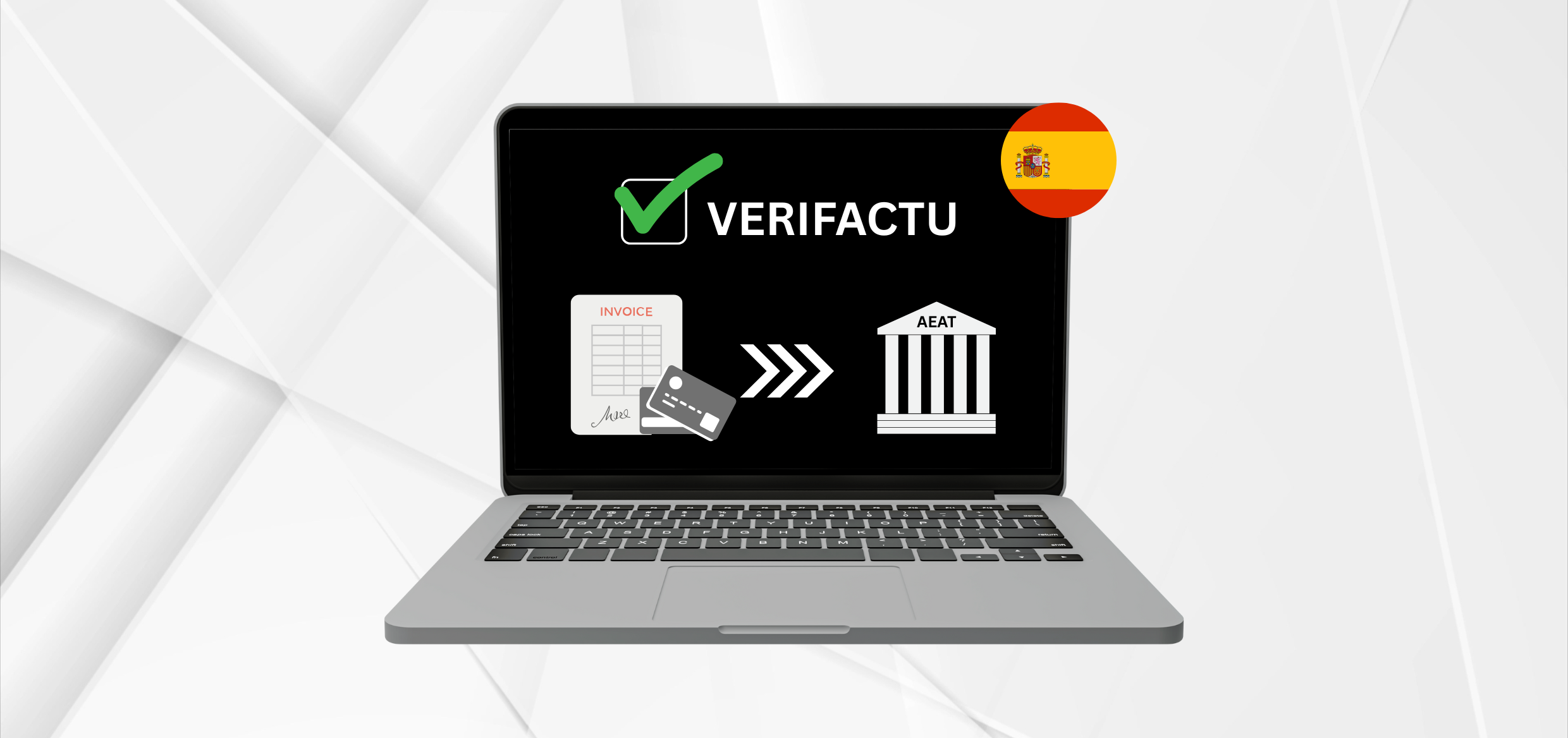VeriFactu: Spain's new tax control system

In Spain, businesses are facing a new compliance challenge with the introduction of
Deriving from the 2021 anti-fraud law and specified by Royal Decree 1007/2023 and Ministerial Order HAC/1177/2024, VeriFactu aims to make invoices more traceable and transparent in order to combat tax fraud more effectively.
As a Sage business partner,
VeriFactu is an advanced invoice verification system that requires certified invoicing software to ensure that each invoice is authentic, traceable and unalterable.
In practice, each issued or modified invoice automatically generates a record that can be:
The objective is clear: to prevent invoice manipulation and enhance tax control.
The transition will take place in several stages:
Please note that taxpayers who already use the immediate information system (SII) are generally exempt from this obligation.
In order to comply with the regulations, certified invoicing software must incorporate the following requirements:
Compliance with VeriFactu can be complex. As a Sage business partner, Deveho Consulting Group offers its expertise and tailored solutions such as Sage X3 2025R1.
Our solution enables businesses to:
Spain is currently undergoing a major transformation, with new regulations being introduced to strengthen tax control and combat fraud. Two systems are at the forefront of this change: electronic invoicing and VeriFactu. Although these systems are related, they have different objectives and requirements.
Electronic invoicing involves creating, sending and storing invoices in a digital format.
The main purpose of electronic invoicing is to simplify administrative processes, reduce costs and improve efficiency.
👉 It also offers a degree of flexibility, as an electronic invoice can be modified using the issuing software if regulations allow.
Read our dedicated article to find out more about the electronic invoicing system in Spain and Europe:
https://deveho.com/newsroom/e-invoicing-in-europe/
VeriFactu offers more than just digitisation. It is a verifiable invoicing system designed to ensure tax compliance.
Its key features include:
👉 In summary, while electronic invoicing primarily aims to digitise and streamline transactions, VeriFactu adds an extra layer of control and fiscal transparency, thereby enhancing the reliability of the data communicated to the administration.
VeriFactu represents another step for Spain towards achieving a more transparent and digitised tax administration system.
Although this system represents a technical challenge for businesses and self-employed workers, it also presents an opportunity to build trust, modernise processes and anticipate audits.
Thanks to the expertise of partners such as Deveho Consulting Group and solutions such as Sage X3 2025R1, the transition can be smooth and secure.
Adopting VeriFactu is not just a regulatory requirement, but also a strategic step towards the future of invoicing.